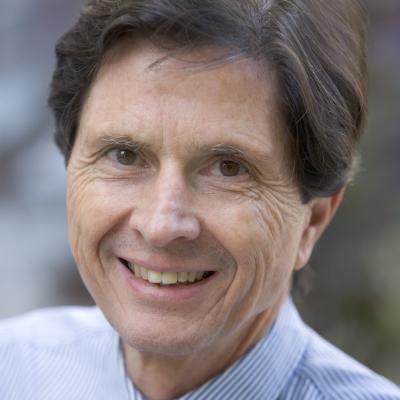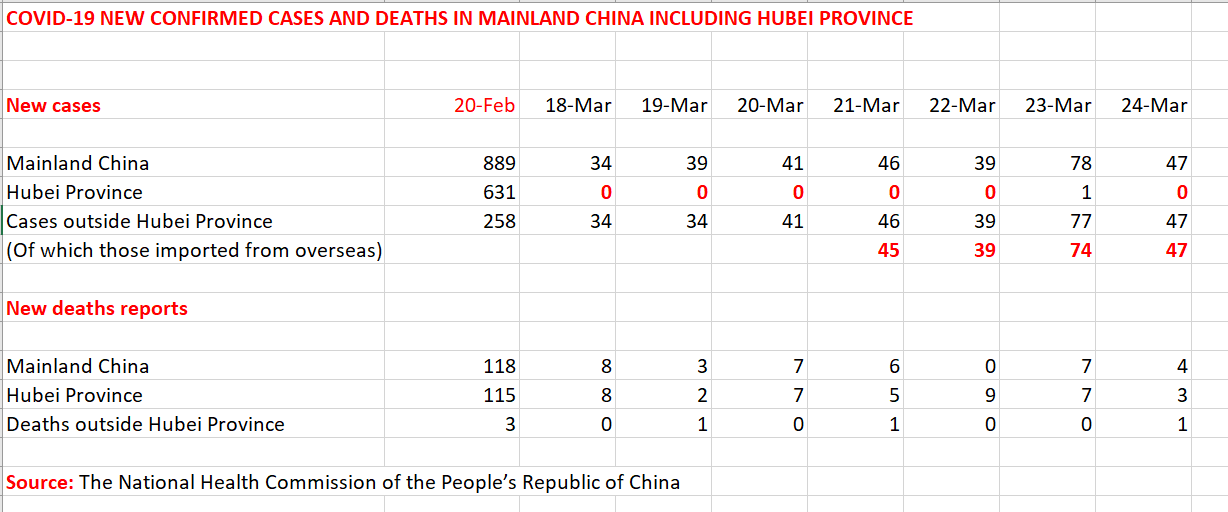INTERNATIONAL. As part of our continuing service to update the travel retail community on COVID-19 and its impact on business, The Moodie Davitt Report yesterday (24 March) hosted a follow-up phone-in audience with Dr. David Heymann, Professor of Infectious Disease Epidemiology at the London School of Hygiene & Tropical Medicine and Head of the Centre on Global Health Security at Chatham House, London. This came after a well-attended interactive discussion with the travel retail community in early February.

From 2012 to March 2017, Dr Heymann was Chairman of Public Health England. Earlier in his distinguished career, he was Executive Director of the Communicable Diseases Cluster, and crucially, he headed the global response to SARS in 2003.
The Moodie Davitt Report Chairman and Founder Martin Moodie and President Dermot Davitt hosted the session with Dr. Heymann, covering the current global response to the coronavirus, the search for a treatment and a vaccine and what lies ahead for a changed business world when the outbreak passes.
Dr. Heymann opened by giving a candid summary of the global picture, and assessing how successful certain countries and regions have been at containing COVID-19.
Of Mainland China and Hubei Province, where the pandemic originated, he said: “China has had success in decreasing the transmission of this virus in the epicentre and outside the epicentre. They are beginning to lift some of their lockdown procedures, and are getting some people back to work very cautiously while the rest of the world watches to see what happens.”
Warning of a recent spike in cases in China imported by travellers arriving from overseas, Dr Heymann added: “The concern is there might be a second wave coming out of China; especially as their air traffic increases it may be that this spreads further internationally. But at present, China is having more cases that come in every day from Europe and other parts of the world than are actually occurring in China.” [See table below]
[Click on the Podcast icon to hear an edited summary of the discussion with Dr David Heymann]
On the wider picture in Asia, he continued: “These countries have had quite good success in decreasing the transmission of the virus. In places like Singapore, where I was two weeks ago to do some teaching, they have continued with business as usual and with schools open. Singapore has been the most liberal in how they have approached this, having learned a lot from the SARS outbreak, but they are being very cautious.

“South Korea has done a remarkable job in containing the major outbreaks that occurred mainly from two church gatherings. They have been able to decrease the number of new cases and have also been able to prevent high levels of mortality, as has Singapore, partly because they were prepared.
“The same is more or less true for Hong Kong. They see cases come from Mainland China, they immediately identify them and isolate. Testing is very important because you can isolate people as soon as you find they are infected, so you decrease new cases of transmission.”
Summarising the latest developments in the Middle East, Dr. Heymann said: “The major source of infection has been a pilgrimage site in Iran and that has then spread out to many countries. Those countries are taking very draconian measures.”
Europe has now become the heart of the outbreak, with Italy having seen more deaths than any other country and more than 10,000 confirmed cases in Italy, Spain, Germany and France. “Looking into Europe, you have seen what happens in a country where there is no preparedness or weak preparedness and not enough hospital beds and ventilators, as has occurred in Italy and now in Spain,” Dr. Heymann commented.
“In the rest of Europe, they are seeing an increase in cases after initial efforts to contain the outbreak. Various strategies are being developed in different countries based on the national risk assessment and the capacity in those countries to do such things as testing, isolation and putting patients on ventilators. Most of the strategies in Europe are now to flatten the curve to make sure that their hospital system isn’t overwhelmed,” he added.
Dr. Heymann said the response in North America has been “varied”. He continued: “There are several states, like New York, California and others, that have taken measures very similar to what has been going on in parts of Europe with keeping people indoors. It is still too early in the US to see what is going to happen there.
“Canada has chosen a different strategy. They had SARS outbreaks and are dealing with this in a quite different way. They haven’t yet shut down everything, but they are instilling in their people what needs to be instilled in people everywhere: the belief that they have the capacity to control this outbreak themselves if they self-isolate.”
Inflection points and prospects for a vaccine
As the outbreak intensifies outside China and further travel restrictions are introduced across the world, attention has turned to when the number of new individual cases will reach their respective inflection points and when a vaccine might emerge.
Offering Italy as an example of a country that has introduced restrictions on movement over the last month, Dr Heymann said: “Italy is now at a point where figures are one day on the increase and one day on the decrease, but the general trend is that they have flattened the curve now and are pulling out of a very terrible situation.”
“To summarise, if there is a vaccine that is shown to be effective, it would likely be available by early next year”
There has also been speculation that the summer months might bring about a reduction in cases. Commenting, Dr. Heymann said: “Some people have hoped the disease will disappear in the summer months. This is certainly possible because other respiratory infections do decrease in the summer months, but it is not clear the virus has any particular characteristics that would make it less transmissible in the summer months.”
On the possible development of a vaccine, he pointed out: “Vaccine development is being done right now by the biotech companies.
“The process normally takes at least a year and then the regulatory agencies will look at all the dossiers that come from various studies and make a judgement on whether a vaccine is licensed. Once a vaccine is licensed, there then has to be production capacity identified.
“The processes that would usually be linear are already going on in parallel, so there is already a search for what countries might be able to produce a vaccine. Once that is identified, there will have to be cleaning of production lines and putting this vaccine into production. Many countries then have laws that no vaccine can be exported until national demand has been met. So all those issues are a problem in making sure there is access worldwide to a vaccine.
“To summarise, if there is a vaccine that is shown to be effective, it would likely be available by early next year.”
Dr Heymann concluded the session by answering questions on the economic outlook and what lies ahead for business in what he bills a “changed world”.
“People will have developed ways of working that they never used before,” he said. “Some of those will increase in importance like more getting together virtually. This will have an impact on the travel industry and airlines, especially those that have survived this severe blow.
“It’s the same with the cruise ship industry, there will need to be some confidence-building measures to ensure passengers will not end up in a situation as has been seen. This will be based on innovation. Humans are very innovative and there will be innovations that work in this changed world to instil confidence in passengers.
“These are things for industries to think about now as they move ahead, understanding that it will be a changing world and what we had counted on for incomes in the past may not be so sure in the future.”
Note: A full version of the session will appear in the next edition of The Moodie Davitt eZine, out in the coming days.













